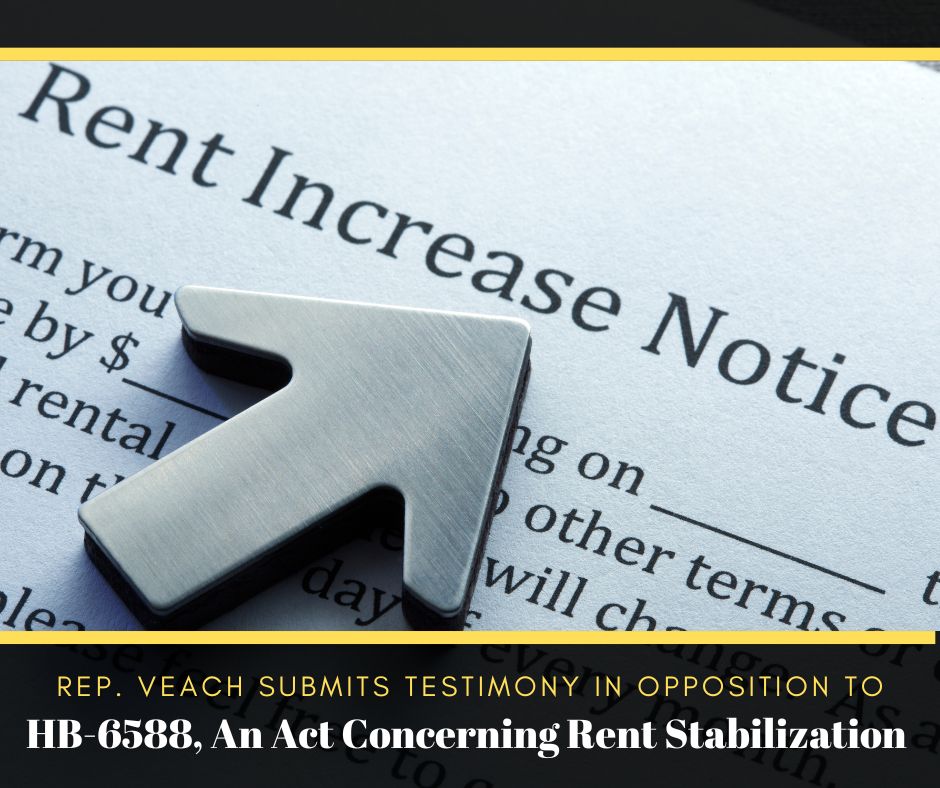
Posted on February 22, 2023
Chairman Luxenberg and Moore, Ranking Members Scott and Sampson, and Distinguished Members of the Committee, thank you for allowing the opportunity to submit written testimony strongly opposing
HB-6588, An Act Concerning Rent Stabilization.
Just last year an anti-landlord bill was pushed through the legislature in complete disregard for the hard-working landlords owning property in Connecticut. Who are we to dictate how much rent should be or how often or to what degree a someone can raise rent in a building they own? Are our insurance companies and utility companies being told that they cannot increase our premiums or monthly payments? Why do we insist on putting certain restrictive parameters in place for some and not for others?
Every year the government takes away what hard working people are entitled to. Nobody, especially the government, should be determining what they can and cannot do with their property. If this legislative body is not willing to provide property owners with the same protections this bill proposes the tenants are worthy of, such as offering a limit to the property owner’s cost increases by restricting the electric, gas, oil, and tax increases to an equal percentage, then we have failed the hardworking people of our state. How can we on one hand suggest freezing a businessperson’s increases to 4% when, on the other hand, we permit that businessperson’s suppliers to make a 30-50% or more increase? This is a blueprint for failure.
This bill will undoubtedly drive out many more of our property owners who struggle to keep up with the inflated costs of repairs, while also being faced with the prospect of not being able to offset some of these costs. This bill will degrade the neighborhoods by the unavoidable hardship it imposes upon the property owners. Neighborhoods with property owners who have already been negatively affected by the recent “no eviction” bill.
This bill has not been thought through, as it clearly ignores simple economics. For many neighborhoods that are currently struggling, this will be the final straw in creating mass property abandonment. It will produce dilapidated rundown dwellings where vibrant neighborhoods and decent communities used to exist.
